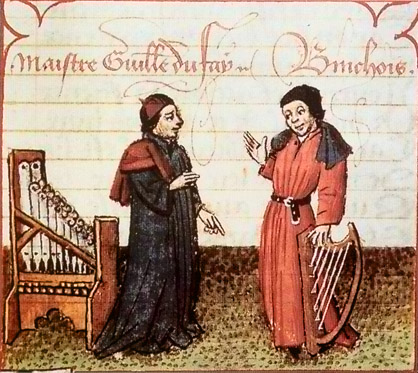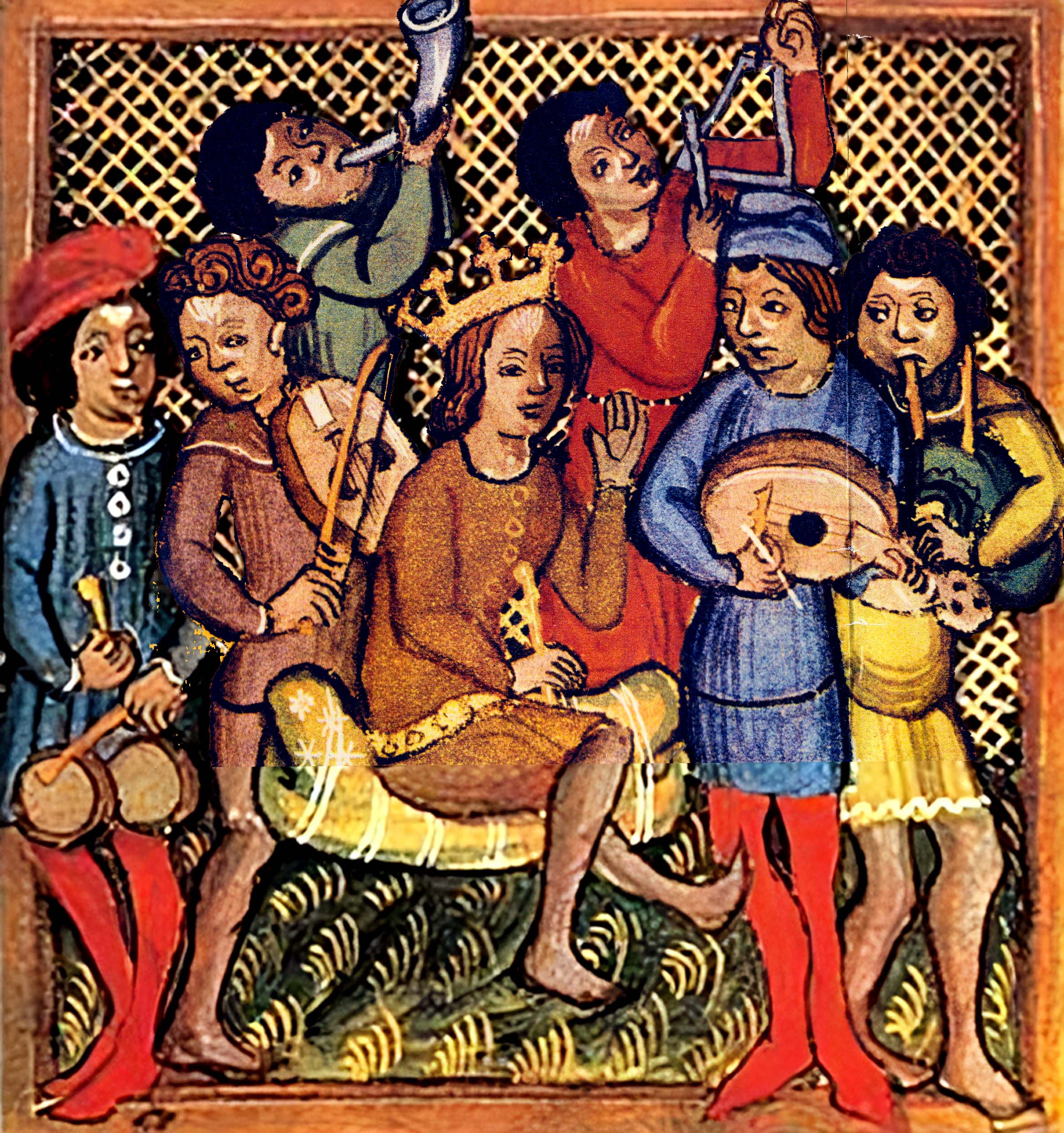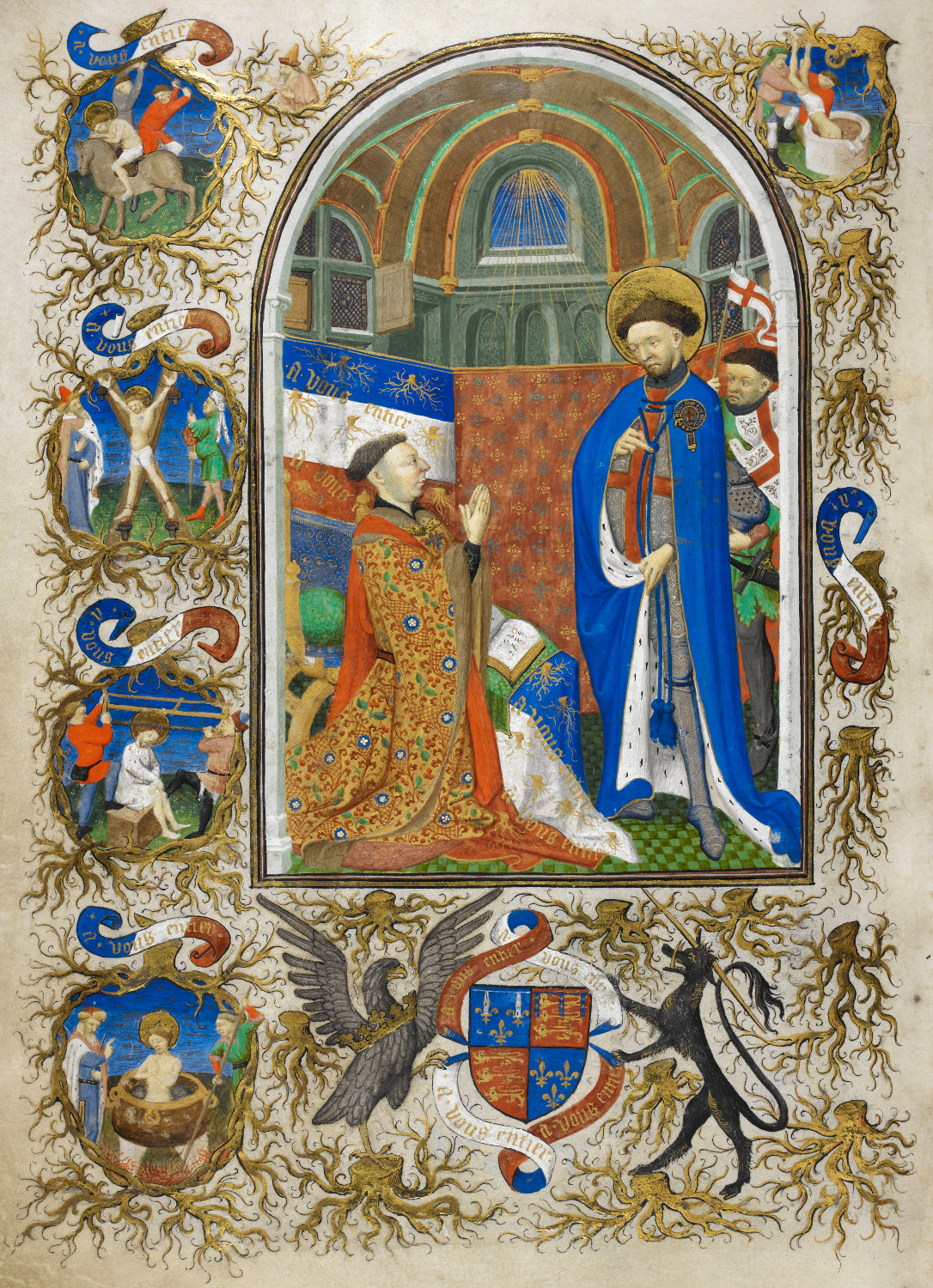|
Dunstaple
John Dunstaple (or Dunstable, – 24 December 1453) was an English composer whose music helped inaugurate the transition from the medieval to the Renaissance periods. The central proponent of the '' Contenance angloise'' style (), Dunstaple was the leading English composer of his time, and is often coupled with William Byrd and Henry Purcell as England's most important early music composers. His surviving music is exclusively vocal, and frequently uses isorhythms, while pioneering the prominent use of harmonies with thirds and sixths. His style would have an immense influence on the subsequent music of continental Europe, inspiring composers such as Du Fay, Binchois, Ockeghem and Busnois. Information on Dunstaple's life is largely non-existent or speculative, with the only certain date of his activity being his death on Christmas Eve of 1453. Probably born in Dunstable, Bedfordshire during the late 14th-century, Dunstaple was associated with Humphrey, Duke of Gloucester and ... [...More Info...] [...Related Items...] OR: [Wikipedia] [Google] [Baidu] |
Renaissance Music
Renaissance music is traditionally understood to cover European music of the 15th and 16th centuries, later than the Renaissance era as it is understood in other disciplines. Rather than starting from the early 14th-century '' ars nova'', the Trecento music was treated by musicology as a coda to Medieval music and the new era dated from the rise of triadic harmony and the spread of the ' ''contenance angloise'' ' style from Britain to the Burgundian School. A convenient watershed for its end is the adoption of basso continuo at the beginning of the Baroque period. The period may be roughly subdivided, with an early period corresponding to the career of Guillaume Du Fay (c. 1397–1474) and the cultivation of cantilena style, a middle dominated by Franco-Flemish School and the four-part textures favored by Johannes Ockeghem (1410's or 20's – 1497) and Josquin des Prez (late 1450's – 1521), and culminating during the Counter-Reformation in the florid counterpoint of Palest ... [...More Info...] [...Related Items...] OR: [Wikipedia] [Google] [Baidu] |
Gilles Binchois
Gilles de Bins dit Binchois (also Binchoys; – 20 September 1460) was a Franco-Flemish composer of early Renaissance music. A central figure of the Burgundian School, Binchois and his colleague Guillaume Du Fay were deeply influenced by the ''contenance angloise'' style of John Dunstaple. His efforts in consolidating a 'Burgundian tradition' would be important for the formation of the Franco-Flemish School. One of the three most famous composers of the early 15th century, Binchois is often ranked behind Du Fay and Dunstable by contemporary scholars, but his works were still widely cited, emulated and used as source material after his death. Described by the musicologist Anthony Pryer as a "supreme miniaturist", he generally avoided large scale works, and is most admired for his shorter secular chansons. Despite this, it is thought that considerably more of his sacred music survives than secular music, creating a 'paradoxical image' of the composer. Reflecting on his style, th ... [...More Info...] [...Related Items...] OR: [Wikipedia] [Google] [Baidu] |
Dunstable
Dunstable ( ) is a market town and civil parishes in England, civil parish in Bedfordshire, England, east of the Chiltern Hills, north of London. There are several steep chalk escarpments, most noticeable when approaching Dunstable from the north. Dunstable is the fourth largest town in Bedfordshire and along with Houghton Regis forms the westernmost part of the Luton/Dunstable Urban Area. Etymology In Ancient Rome, Roman times there was a minor settlement called Durocobrivis in the area now occupied by modern-day Dunstable. There was a general assumption that the nominative form of the name had been Durocobrivae, so that is what appears on the map of 1944 illustrated Dunstable#History, below. But current thinking is that the form ''Durocobrivis'', which occurs in the Antonine Itinerary, is a fossilised locative that was used all the time and Ordnance Survey now uses this form. There are several theories concerning its modern name: *Legend tells that the lawlessness of t ... [...More Info...] [...Related Items...] OR: [Wikipedia] [Google] [Baidu] |
Contenance Angloise
The ''Contenance angloise'', or English manner, is a distinctive style of polyphony developed in fifteenth-century England which uses full, rich harmonies based on the third and sixth. It was highly influential in the fashionable Burgundian court of Philip the Good, and on European music of the era. Its leading proponent was John Dunstaple, followed by Walter Frye and John Hothby. Origins of the term The phrase ''Contenance Angloise'' was coined by Martin le Franc in 1441–42, in a poem dedicated to Duke Philip the Good of Burgundy (1396–1467) to describe the era's distinctive musical style. Le Franc mentioned English composer John Dunstaple (c. 1390–1453) as the key figure and a major influence on the Burgundian composers Guillaume Dufay and Gilles Binchois.R. H. Fritze and W. Baxter Robison, ''Historical dictionary of late medieval England, 1272-1485'' (Greenwood, 2002), p. 363. Characteristics It is not clear exactly what Martin le Franc saw as the elements of the Contena ... [...More Info...] [...Related Items...] OR: [Wikipedia] [Google] [Baidu] |
Margaret Bent
Margaret Bent CBE , (born Margaret Hilda Bassington; 23 December 1940) is an English musicologist who specializes in music of the late medieval and Renaissance eras. In particular, she has written extensively on the Old Hall Manuscript, English masses as well as the works of Johannes Ciconia and John Dunstaple. Biography Bent was educated at the Acton Haberdashers' Aske's School for Girls and Girton College, Cambridge University (where she read music, was organ scholar, and is now an honorary fellow), receiving her BA in 1962 and PhD in 1969. She taught at Cambridge and King's College London after 1963, and became a lecturer at Goldsmiths' College in 1972. In 1975 she was appointed professor at Brandeis University and in 1981 at Princeton University, and served as department chair in both. Bent was president of the American Musicological Society (1984–1986), of which she is now a Corresponding Member. She returned to England in 1992 as senior research fellow at All Souls Col ... [...More Info...] [...Related Items...] OR: [Wikipedia] [Google] [Baidu] |
William Byrd
William Byrd (; 4 July 1623) was an English composer of late Renaissance music. Considered among the greatest composers of the Renaissance, he had a profound influence on composers both from his native England and those on the continent. He is often coupled with John Dunstaple and Henry Purcell as England's most important early music composers. He wrote in many of the forms current in England at the time, including various types of sacred and secular polyphony, keyboard (the so-called Virginalist school), and consort music. Although he produced sacred music for Anglican services, sometime during the 1570s he became a Roman Catholic and wrote Catholic sacred music later in his life. Life Early life Birth and background Richard Byrd of Ingatestone, Essex was the grandfather of Thomas Byrd, who probably moved to London in the 15th century. Thereafter succeeding generations of the Byrd family are described as gentlemen. William Byrd was probably born in London, the third s ... [...More Info...] [...Related Items...] OR: [Wikipedia] [Google] [Baidu] |
Henry Purcell
Henry Purcell (, rare: September 1659 – 21 November 1695) was an English composer. Purcell's style of Baroque music was uniquely English, although it incorporated Italian and French elements. Generally considered among the greatest English opera composers, Purcell is often linked with John Dunstaple and William Byrd as England's most important early music composers. No later native-born English composer approached his fame until Edward Elgar, Ralph Vaughan Williams, Gustav Holst, William Walton and Benjamin Britten in the 20th century. Life and work Early life Purcell was born in St Ann's Lane, Old Pye Street, Westminster – the area of London later known as Devil's Acre, a notorious slum – in 1659. Henry Purcell Senior, whose older brother Thomas Purcell was a musician, was a gentleman of the Chapel Royal and sang at the coronation of King Charles II of England. Henry the elder had three sons: Edward, Henry and Daniel. Daniel Purcell, the youngest of the b ... [...More Info...] [...Related Items...] OR: [Wikipedia] [Google] [Baidu] |
Medieval Music
Medieval music encompasses the sacred and secular music of Western Europe during the Middle Ages, from approximately the 6th to 15th centuries. It is the first and longest major era of Western classical music and followed by the Renaissance music; the two eras comprise what musicologists generally term as early music, preceding the common practice period. Following the traditional division of the Middle Ages, medieval music can be divided into Early (500–1150), High (1000–1300), and Late (1300–1400) medieval music. Medieval music includes liturgical music used for the church, and secular music, non-religious music; solely vocal music, such as Gregorian chant and choral music (music for a group of singers), solely instrumental music, and music that uses both voices and instruments (typically with the instruments accompanying the voices). Gregorian chant was sung by monks during Catholic Mass. The Mass is a reenactment of Christ's Last Supper, intended to provide a ... [...More Info...] [...Related Items...] OR: [Wikipedia] [Google] [Baidu] |
Johannes Ockeghem
Johannes Ockeghem ( – 6 February 1497) was a Franco-Flemish composer and singer of early Renaissance music. Ockeghem was the most influential European composer in the period between Guillaume Du Fay and Josquin des Prez, and he was—with his colleague Antoine Busnois—the leading European composer in the second half of the 15th century. He was an important proponent of the early Franco-Flemish School. Ockeghem was well associated with other leading composers of the time, and spent most of his career serving the French royal court under Charles VII, Louis XI and Charles VIII. Numerous poets and musicians lamented his death, including Erasmus, Guillaume Crétin, Jean Molinet and Josquin, who composed the well known ''Nymphes des bois'' for him. It is thought that Ockeghem's extant works represent only a small part of his entire ''oeuvre'', including around 14 masses, 20 chansons and less than 10 motets—though the exact numbers vary due to attribution uncertainties. His be ... [...More Info...] [...Related Items...] OR: [Wikipedia] [Google] [Baidu] |
Guillaume Du Fay
Guillaume Du Fay ( , ; also Dufay, Du Fayt; 5 August 1397(?) – 27 November 1474) was a French composer and music theorist of the early Renaissance. Considered the leading European composer of his time, his music was widely performed and reproduced. Du Fay was well-associated with composers of the Burgundian School, particularly his colleague Gilles Binchois, but was never a regular member of the Burgundian chapel himself. While he is among the best-documented composers of his time, Du Fay's birth and family is shrouded with uncertainty, though he was probably the illegitimate child of a priest. He was educated at Cambrai Cathedral, where his teachers included Nicolas Grenon and Richard Loqueville, among others. For the next decade, Du Fay worked throughout Europe: as a subdeacon in Cambrai, under Carlo I Malatesta in Rimini, for the House of Malatesta in Pesaro, and under Louis Aleman in Bologna, where he was ordained priest. As his fame began to spread, he settled in Rome i ... [...More Info...] [...Related Items...] OR: [Wikipedia] [Google] [Baidu] |
University Of Cambridge
, mottoeng = Literal: From here, light and sacred draughts. Non literal: From this place, we gain enlightenment and precious knowledge. , established = , other_name = The Chancellor, Masters and Scholars of the University of Cambridge , type = Public research university , endowment = £7.121 billion (including colleges) , budget = £2.308 billion (excluding colleges) , chancellor = The Lord Sainsbury of Turville , vice_chancellor = Anthony Freeling , students = 24,450 (2020) , undergrad = 12,850 (2020) , postgrad = 11,600 (2020) , city = Cambridge , country = England , campus_type = , sporting_affiliations = The Sporting Blue , colours = Cambridge Blue , website = , logo = University of Cambridge logo ... [...More Info...] [...Related Items...] OR: [Wikipedia] [Google] [Baidu] |
John Of Lancaster, 1st Duke Of Bedford
John of Lancaster, Duke of Bedford KG (20 June 138914 September 1435) was a medieval English prince, general and statesman who commanded England's armies in France during a critical phase of the Hundred Years' War. Bedford was the third son of King Henry IV of England, brother to Henry V, and acted as regent of France for his nephew Henry VI. Despite his military and administrative talent, the situation in France had severely deteriorated by the time of his death. Bedford was a capable administrator and soldier, and his effective management of the war brought the English to the height of their power in France. However, difficulties mounted after the arrival of Joan of Arc, and his efforts were further thwarted by political divisions at home and the wavering of England's key ally, Duke Philip of Burgundy and his faction, the Burgundians. In the last years of Bedford's life, the conflict devolved into a war of attrition, and he became increasingly unable to gather the necessa ... [...More Info...] [...Related Items...] OR: [Wikipedia] [Google] [Baidu] |




.jpg)





